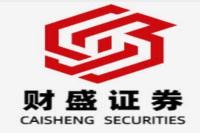Decoding the Tech Stock Dip: A Deep Dive into the Recent Hang Seng Tech Index Fall
Meta Description: Hang Seng Tech Index, JD Health, XPeng Motors, SMIC, Meituan, tech stock market analysis, investment strategies, market volatility, China tech sector
Whoa, Nelly! The Hang Seng Tech Index just took a nosedive, leaving investors scratching their heads and reaching for the smelling salts. A sudden drop of over 2%, with heavy hitters like JD Health plummeting over 4%, and XPeng Motors, SMIC (Semiconductor Manufacturing International Corporation), and Meituan suffering significant losses exceeding 3%, has sent shockwaves through the market. But don't panic! This isn't just another day of market fluctuations; there's a deeper story unfolding here. This comprehensive analysis will dissect the recent downturn, examining the contributing factors, exploring potential long-term implications, and providing actionable insights for savvy investors navigating this turbulent landscape. We'll delve into the specifics of each affected company, exploring their individual vulnerabilities and assessing their resilience in the face of this market correction. Get ready to unravel the mystery behind this dramatic fall, because understanding the "why" is the key to making informed investment decisions in the volatile world of tech stocks. We'll go beyond the headline numbers and explore the underlying economic trends, regulatory pressures, and global market forces that are shaping the future of the Chinese tech sector. Forget surface-level analysis; buckle up for a deep dive into the heart of this market event, offering you the expert insights needed to confidently navigate your investment strategy. Remember, knowledge is power, and understanding the intricacies of the market is your ultimate weapon against uncertainty.
Hang Seng Tech Index Plunge: What Happened?
The recent slump in the Hang Seng Tech Index wasn't a random event; it was a confluence of factors that collectively triggered a significant market correction. Several key elements contributed to this downturn:
-
Global Macroeconomic Headwinds: The global economy is currently facing a complex interplay of challenges. Inflation remains stubbornly high in many regions, prompting central banks to maintain restrictive monetary policies. This environment dampens investor sentiment and reduces appetite for riskier assets like tech stocks. It's a domino effect, folks; rising interest rates make borrowing more expensive, impacting business expansion and potentially slowing down the growth of tech companies.
-
Regulatory Concerns in China: China's regulatory landscape for its tech sector remains a significant source of uncertainty. While the government has eased some restrictions recently, the memory of past crackdowns still lingers in the minds of investors. This ambiguity creates volatility and discourages aggressive investment, as the risk of further interventions remains very real. The "wait-and-see" approach is often adopted by investors, leading to price corrections.
-
Company-Specific Challenges: The underperformance of individual companies like JD Health, XPeng Motors, SMIC, and Meituan reflects a combination of factors specific to each entity. JD Health might be facing challenges related to the competitive landscape in the healthcare sector, while XPeng Motors could be grappling with slowing sales growth or supply chain disruptions. SMIC's performance may reflect the global semiconductor market's cyclical nature, and Meituan's struggles could be tied to changing consumer spending patterns or regulatory constraints.
-
Investor Sentiment and Market Psychology: Fear and uncertainty are contagious, especially in the financial markets. A negative news cycle, even if partially unfounded, can trigger a "sell-off" as investors rush for the exits to protect their capital. This herd mentality can amplify the initial shock, leading to a more significant decline than might be warranted by fundamental factors alone. It's like a game of telephone, but with billions of dollars at stake!
Table 1: Key Performance Indicators (KPIs) of Affected Companies (Illustrative)
| Company | Sector | Approximate % Drop (Illustrative) | Potential Contributing Factors |
|----------------|-----------------|---------------------------------|-------------------------------------------------------------|
| JD Health | Healthcare Tech | 4%+ | Increased competition, regulatory changes, market saturation |
| XPeng Motors | Electric Vehicles | 3%+ | Slowing sales, supply chain issues, competition |
| SMIC | Semiconductors | 3%+ | Global chip market slowdown, geopolitical tensions |
| Meituan | E-commerce/Tech | 3%+ | Changing consumer spending, regulatory scrutiny |
These factors are interconnected and reinforce each other, creating a perfect storm that led to the recent Hang Seng Tech Index decline. It’s not a single cause, but a complex web of events that requires a nuanced understanding. It's a bit like solving a complicated puzzle, where you need to meticulously piece together all the clues to arrive at a comprehensive picture.
Analyzing Individual Stock Performances
Let’s delve deeper into the individual performance of some of the key players that experienced significant drops:
JD Health: While JD Health is a dominant player in the Chinese online healthcare market, competitors are emerging, presenting a challenge to its market share. Furthermore, regulatory changes impacting the healthcare sector could be putting pressure on its margins and growth trajectory. It's a case of navigating a dynamic landscape, requiring strategic adjustments to stay ahead of the curve.
XPeng Motors: XPeng, like other electric vehicle (EV) manufacturers, faces intense competition, both domestically and internationally. Supply chain disruptions, rising raw material costs, and the need to continually innovate to maintain a competitive edge can put pressure on profit margins. Remember the chip shortage? That kind of issue can significantly impact production and sales.
SMIC (Semiconductor Manufacturing International Corporation): SMIC's performance is intricately linked to the global semiconductor industry's cyclical nature. Geopolitical tensions and trade disputes can further exacerbate the challenges faced by this key player in the global chip arena. It's a story of global interdependence and the impact of international relations on a company's bottom line.
Meituan: Meituan, a giant in the Chinese e-commerce and food delivery sector, is facing a slowdown in consumer spending, which, coupled with regulatory scrutiny, might be impacting its growth. It's a testament to the sensitivity of consumer-centric businesses to economic shifts and regulatory changes.
Long-Term Implications and Investment Strategies
The recent decline doesn't necessarily signal the end of the road for these tech giants. The long-term outlook requires considering several factors, including the resilience of the companies, the overall health of the Chinese economy, and potential future regulatory shifts. Don't throw the baby out with the bathwater; patience and a long-term perspective are crucial.
For investors, a cautious but strategic approach is recommended. Thorough due diligence, diversification across multiple sectors, and a clear understanding of the risks associated with investing in the Chinese tech sector are crucial. It's about balancing potential rewards with calculated risks. You don’t want to be caught off guard!
Remember, market corrections are a natural part of the investment cycle. They present opportunities for savvy investors to accumulate quality assets at discounted prices. The key is to identify undervalued companies with strong fundamentals and a promising long-term outlook. It’s about picking the right horses, folks.
Frequently Asked Questions (FAQ)
Q1: Is this the beginning of a larger market crash?
A1: It's impossible to predict the future with certainty. While the recent drop is significant, it's too early to definitively say if it's the start of a broader market crash. It's crucial to monitor macroeconomic indicators and company-specific news closely.
Q2: Should I sell my tech stocks immediately?
A2: Panic selling is rarely a good strategy. The decision to sell should be based on your individual investment goals and risk tolerance. If you believe in the long-term potential of your investments, holding onto them might be the better option.
Q3: Are Chinese tech stocks still a good investment?
A3: Chinese tech stocks offer significant growth potential, but also carry considerable risk. Careful due diligence, diversification, and a long-term perspective are essential. It's like a rollercoaster; ups and downs are part of the ride, but the view from the top can be amazing!
Q4: What are some ways to mitigate the risk?
A4: Diversify your portfolio across multiple asset classes and geographies, perform thorough due diligence on individual companies, and only invest what you can afford to lose.
Q5: How can I stay updated on the market?
A5: Stay informed by following reputable financial news sources, consulting with a qualified financial advisor, and keeping track of key market indicators.
Q6: What are the potential upside opportunities?
A6: Market corrections can offer opportunities to acquire strong companies at discounted prices. Thorough research and a long-term investment horizon can help you capitalize on these opportunities.
Conclusion
The recent dip in the Hang Seng Tech Index highlights the inherent volatility of the tech sector, particularly in the context of global macroeconomic uncertainties and the evolving regulatory landscape in China. While the short-term outlook might appear uncertain, investors with a long-term perspective and a well-diversified portfolio can potentially navigate this turbulence and capitalize on future opportunities. Remember, staying informed, understanding the risks, and making calculated decisions are key to success in this dynamic market. It's not about timing the market perfectly; it's about time in the market. So, breathe, learn, adapt, and keep investing wisely!



